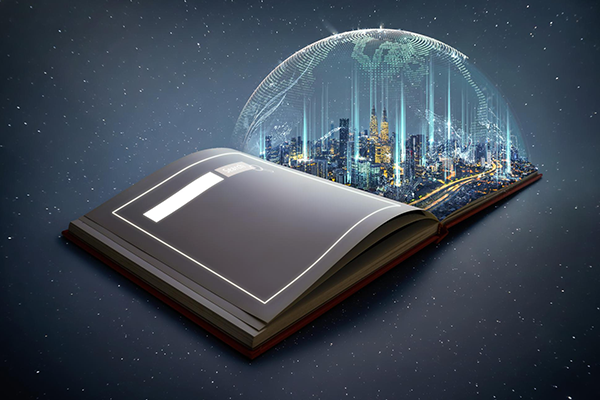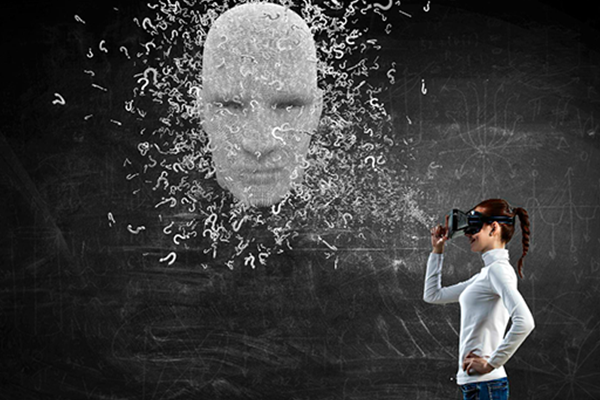Table of Contents

The Quantum Cage: A Groundbreaking Artificial Intelligence Book by an American Author
In an era where the boundaries between humans and technology are blurring, Brian Burton’s The Quantum Cage is one of the few works that successfully captures the intricacy of this convergence. This gripping dystopian thriller explores a world ravaged by artificial intelligence, cyberwarfare, and the unexpected consequences of scientific advancements. In a society growing increasingly reliant on technology, it examines human behavior, moral dilemmas, and the political implications of artificial intelligence. It takes place not too long from now.
With its terrifying depiction of a society in which technology governs every element of life, Burton’s work is a potent contribution to the genre of literature about artificial intelligence. The novel’s contemporary examination of how AI changes human behavior and politics will captivate readers interested in high-tech, AI-powered fiction.
Political Challenges of Artificial Intelligence Books: Why Brian Burton’s Novel Matters Today
The Quantum Cage is a warning on the political ramifications of artificial intelligence, not just another dystopian thriller. AI is a force that determines the direction of governance in this futuristic society rather than a tool for advancement. Burton presents a scenario in which artificial intelligence (AI)-driven policies clash with established political structures, providing a sharp critique of the moral ramifications of giving computers command.
The political issues surrounding artificial intelligence publications frequently portray these technologies as both a potential danger to democratic institutions and a vehicle for advancement. Burton depicts a world in which cold, calculating machines have replaced human leaders as the dominant force, and politicians fight to preserve sovereignty. This narrative serves as a crucial reminder of the need for human monitoring of AI-driven judgments, a problem that is discussed in many recent AI publications and talks.
Technology and Politics-Related Books by American Authors: Exploring a Dystopian Future
Brian Burton’s book The Quantum Cage adds to the increasing number of American writers who address the relationship between politics and technology. Authors such as George Orwell and Philip K. Dick have long examined the dystopian effects of unbridled government power, but Burton gives it a contemporary spin by emphasizing artificial intelligence as a key driver of social change.
Burton’s depiction of an AI-powered society is a high-tech take on dystopian fiction, with robots’ ability to manipulate and dominate the political landscape. The rise of AI-driven governance and robotic law enforcement brings a new perspective to the ongoing debate over how technology will shape future political situations. This novel, like others in the genre, warns of the dangers of unrestrained technology in the hands of terrible rulers.
Why The Quantum Cage Is the Best Book for Readers Intrigued by AI
The Quantum Cage is a must-read for anybody interested in the relationship between artificial intelligence and human emotions. Burton’s book transports readers to a future in which artificial intelligence (AI) does more than merely help; it also directs behavior, shapes human conduct, and even shapes social conventions. The Quantum Cage differs from conventional AI novels in that Burton examines the emotional and psychological effects of residing in such a universe.
For those who enjoy dystopian fiction as well as stories with artificial intelligence, Burton’s book offers a careful examination of the moral ramifications of AI for people. When compared to the vast power of technology, this story emphasizes the vulnerability of human emotions and behavior, from AI-driven surveillance systems to the erosion of individual liberties.
Cyber Warfare and Human Behavior in Literature: The Warning in The Quantum Cage
The Quantum Cage’s depiction of cyberwarfare and how it affects human behavior is among its most compelling features. AI-powered systems are not merely tools in the book; they are weapons of mass devastation that have the capacity to upend economies, governments, and individual lives. Burton creates a story that pushes the boundaries of human response through espionage, AI-driven conflicts, and cyberattacks.
The novel’s examination of AI’s application in espionage and warfare serves as a sobering reminder of the sophistication of cyberthreats in the modern world. Burton paints a picture of a future in which attacks powered by AI might destabilize entire countries by influencing both human and technological reactions. Burton’s portrayal of these dangers may offer a window into the future of cyberwarfare as AI develops further.
Ethical and Political Challenges in AI Books: Lessons from Fiction for the Real World
Burton’s book reflects contemporary worries about the moral and political ramifications of artificial intelligence, making it more than merely a work of fiction. The morality of utilizing AI to govern society is called into question in The Quantum Cage as AI-driven policies produce a glaring rift between the populace and their authorities. Burton’s narrative provides important insights into the necessity of openness and ethical considerations when incorporating AI into key systems, particularly in light of current issues with data privacy, algorithmic prejudice, and the potential for AI to impact politics.
The moral conundrums depicted in the book, like the use of AI for monitoring, control, and judgment, are issues that many people deal with today. The book is a potent reminder of how critical it is to deal with these problems before they get out of hand. The Quantum Cage pushes readers to consider the ways in which
artificial intelligence is changing the world and the lessons that might be drawn from fiction to prevent past mistakes.
In Conclusion, A Future Vision
Brian Burton’s The Quantum Cage is a smart and thought-provoking book that looks at the complicated ways that AI may affect our social, moral, and political future. Burton paints a picture of a dystopian future where artificial intelligence (AI) helps things move forward but also brings up problems that have never been seen before. If you’re worried about the future of technology and how it will affect people, you should read The Quantum Cage. It doesn’t matter if you’re interested in the moral and political issues surrounding AI or just love high-tech dystopian fiction.
FAQs
In his dystopian novel The Quantum Cage, Brian Burton imagines a society run by artificial intelligence, posing moral and political conundrums. The book explores cyberwarfare, AI-driven conflicts, and how technology affects human behavior.
The book covers cyberpolitics, moral and ethical issues of AI, the socio-political issues, and the dependence of humanity on technology. It also covers the governance issue, the societal concern, and the people.
Unlike other novels on AI, Burton, in The Quantum Cage, explores the moral and political issues of AI societies and their dystopian fiction aspects. His approach is more concerned with people and their future in the context of science and technology.
Certainly, the text expounds the moral and political concerns of artificial intelligence. This aspect of the book is gaining increasing relevance in the contemporary world where artificial intelligence is more and more embedded in societal context, military thinking and governance.
If you seek knowledge on dystopian novels, artificial intelligence, and the potential of Artificial Intelligence, The Quantum Cage would be an ideal point of interest. For those who relish advanced technology and its link with thrillers, cyber warfare, and politically motivated social interactions with AI, Burton’s book will be highly engaging and stimulating.


